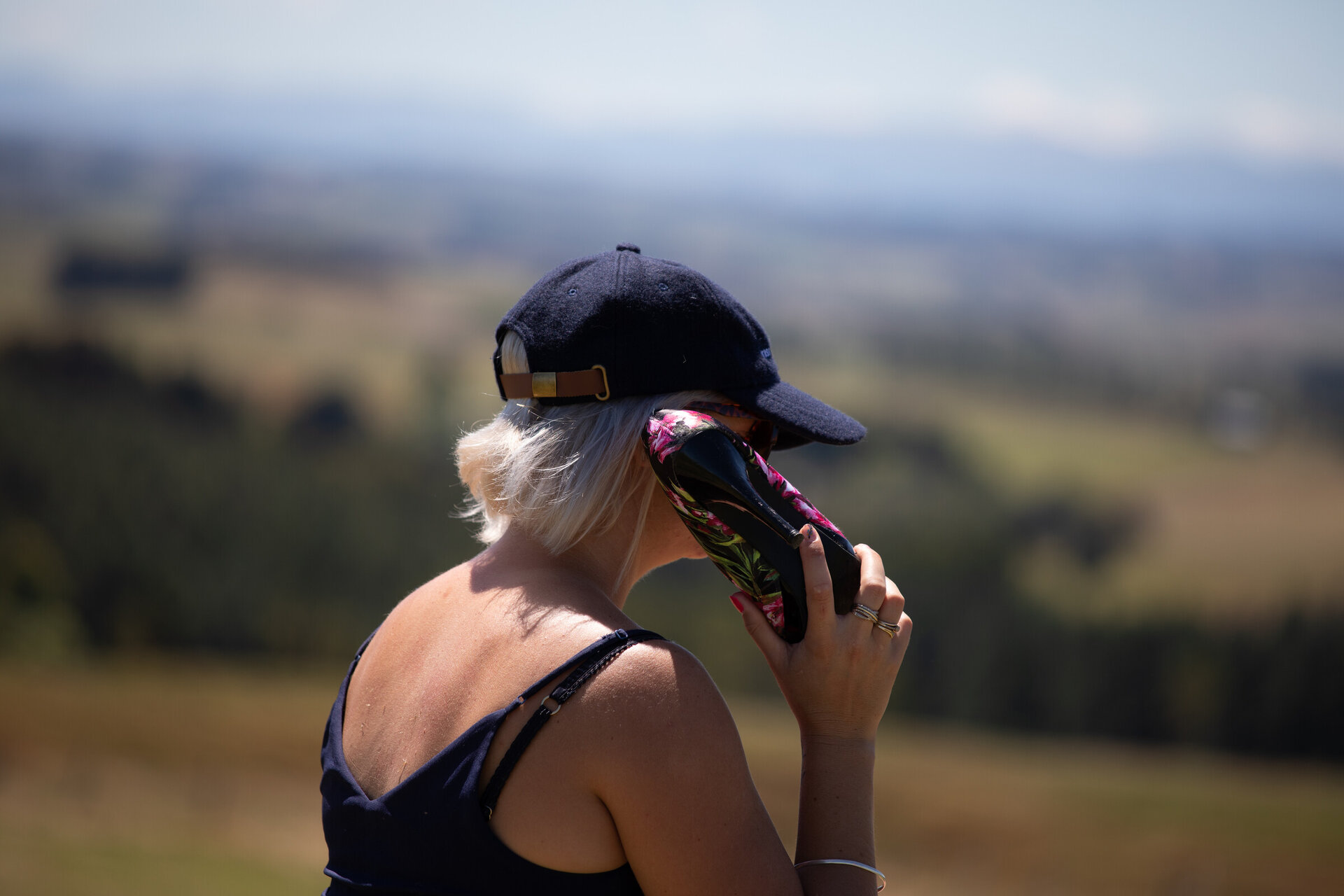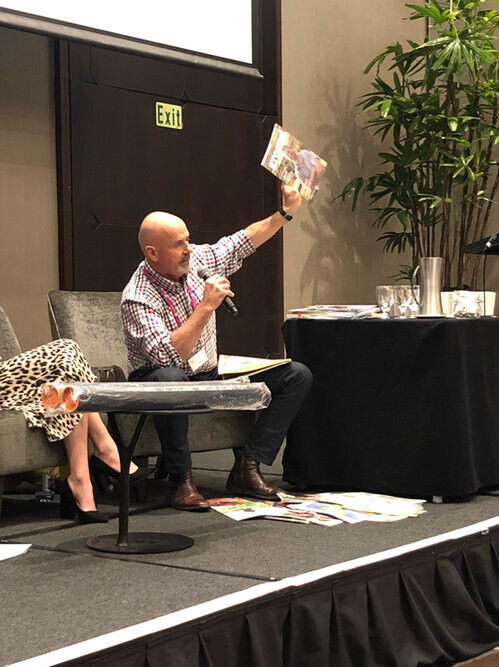GRM recently had the opportunity to sit with Dean Williamson, local superstar, #agvocate, and respected mentor for members of our team and NZ agri-sector.
Dean is the new director at Global HQ - home of the Farmers Weekly publication and AgriHQ. His LinkedIn profile says it best: “A proven leader and experienced director with 25 years experience in the agri-media industry. He is a strategic thinker who has spearheaded success with his expertise in business development, marketing, agricultural enterprise and team management.”
Another fun fact? He was Chelsea’s first boss before she became a Boss Lady her self.
Dean joined the Marketing to the Rural Sector Conference as a contributor on the mediascape panel.
Here is a glimpse into our chat about the conference, print, and social media.
Dean, what was your key take away from the conference?
“I was only able to attend day one and thought the farmer panel was a cracker. Both the farmers’ contributions and questions from the floor were valuable and insightful. As members of the media, it was the one time I felt we scratched the surface and heard the views of our audience - readers and contributors. They were off the cuff and honest.
This is the value of networking with the people you are trying to reach. It would be useful to put our audience at the centre of the discussion more often.”
That was a common theme at the conference. Another theme, and often a disparity between speakers, was the discussion whether print is dead or thriving. Would you like to speak to that?
“The media scape is changing but I don’t think print is dead. It’s just different now. Print maybe declining but now it’s print+ and you just have to be damn good at what you do.
As we heard in the farmer panel, the reader is brutal, they are filtering everything. It was interesting they were so ruthless, throwing most publications in the fire before they even opened them. It was a reminder to publications, that you must earn your stripes, earn your audience, earn the trust of your readers. “
"Print may be declining but now it’s just PRINT+ and you have to be damn good at what you do...." — Dean Williamson
True. At the conference, you shared one of GlobalHQ’s latest OnFarm stories as part of your print+ strategy - can you tell us a little about this initiative?
“The purpose of these videos and articles are to tell the NZ farming story and to tell the story in a way that is extremely shareable.
This is why we chose high production values. We are creating quality video using the authentic farmers’ voice to be shared and on a number of different platforms.
Our name is briefly attached to the stories but we are truely sharing them for a bigger purpose. We want to bridge the urban-rural divide. We want to change the urban perception of farming. We are doing it to help farmers feel better about the work they do. We want these stories to ultimately be a tool for schools, exporters, and marketers.
And it is not all local. Interestingly enough, Ukraine is now our third biggest audience. I just received an email from an individual in Shanghai who wants to use them for promotional purposes. An expat contacted us to say that she is loving sharing them because it is giving her community a real view into her New Zealand life. We are able to use these stories to go global with our story. That’s exciting.”
How do you see social media playing a role in interactive news delivery?
“Social media is there and it is interesting. It’s a tool to be used within the mediascape but not on its own as a news platform.
You can find news on your social media feeds but you almost have to hunt for it. If you are going to find it you have to sift through the crowd of messages and you tend to approach everything carefully. It’s work and requires an active filter.
We get it, we are in that space too. News in digital is very fast. That dynamic is what makes social media interesting and changing, but that environment doesn’t add to the credibility. As readers, we are forgiving of the value of online stories as we don’t know where, or if, they’ve been vetted.
Print, on the other hand, has a reputation of being trusted and has the benefit of the loyalty of their community. Think Wairarapa Times to Wall Street Journal. To an extent, readers know and trust that the content has been thought through.
Consider the priorities. Print works to inform, inspire and then entertain. Whereas, social often works to entertain, inspire, inform. When you are creating social content, look at what you are trying to deliver and how you rank those.
"Print works to inform, inspire and then entertain. Whereas, social often works to entertain first, then inspire, and inform." — Dean Williamson
Social media is the local watering hole — just online. It is important that we are providing content that has a purpose.
Being a farming specific news source, we know our purpose. Entertainment already happens elsewhere, so we will focus on information and staying relevant!!! We have to be more careful and focused about how we approach it.”
Dean, thanks for taking the time to meet with us. It is always a pleasure to catch up, and we look forward to seeing where you drive the company and the industry next!
Trista Burn is an American-born-Kiwi-by-marriage communications specialist. A dairy farmer’s daughter, and a legacy deeply rooted in ag, Trista firmly believes in the value of agvocating and sharing stories. In other words - the heartbeat of GRM.
Home made Apple Pie, Mexican food, soft chocolate chip cookies and coffee are the way to Trista's heart. She is currently learning the fine art of toddler negotiations. She is NOT a dog lover but one affectionate GSP pup named Harry has wiggled his way into her heart and she’s not sure how that happened.




